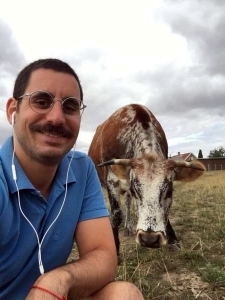Staff profile

| Affiliation | Telephone |
|---|---|
| Research Postgraduate (PhD) in the Department of Geography |
Biography
Burag is a GCRF-funded PhD candidate at Durham University's Human Geography Department. Prior to joining Durham University, he received a BA in Economics (2015) from Bogazici University in Turkey, and after that, he completed an MSc in International Development and Management (2018) at Lund University in Sweden.
Ongoing Research
Governing the Energy-Water Nexus: Sustainable resource governance for development in Turkey -- (2019-2023 GCRF Project)
This interdisciplinary PhD project analyses opportunities to advance sustainable resource governance at the energy-water nexus in Turkey. It focuses empirically on Turkey’s pursuit of high carbon (coal) and low-carbon (geothermal) energy development as part of the country’s ambitious ‘Vision 2023’ programme, and examines the implications of these parallel energy pathways for the management of surface and groundwater resources.
Conceptually the project takes forward two allied developments in research on natural resources and sustainability: critical approaches to ‘nexus thinking’ which focus on the multiple interdependencies among vital sectors of resource provisioning, such as water and energy; and efforts to ‘do environmental governance differently’ that seek to transform the politics of resource governance by co-producing environmental knowledge with a broad range of stakeholders. To date, the energy-water nexus has been understood largely as a technical agenda. An interdisciplinary perspective, however, re-frames the energy-water nexus as a problem of resource governance: key questions concern the appropriate direction (i.e. end goals) of resource management, the distribution of risks and benefits from developing energy and water resources, and the diversity of participation in decision-making. Addressing these dimensions of resource governance is central to furthering the sustainable development and welfare of developing countries.
This project generates new knowledge on governing the energy-water nexus by bringing together specific expertise from the social sciences (Human Geography) and physical sciences (Earth Sciences and Engineering); and by designing the research to engage a wide range of stakeholders. Its scientific outcomes will contribute to the implementation of SDGs 6 (clean water and sanitation), 7 (affordable and clean energy) and 16 (peace, justice and strong institutions) in Turkey.
Research Interests
Publications
Journal Article
- No home for poor men: a comparative study of household debt and homeownership in Denmark and TurkeyTurk, S., & Gurden, B. (2022). No home for poor men: a comparative study of household debt and homeownership in Denmark and Turkey. Journal of Housing and the Built Environment, 37(4), 2239-2261. https://doi.org/10.1007/s10901-022-09930-8

